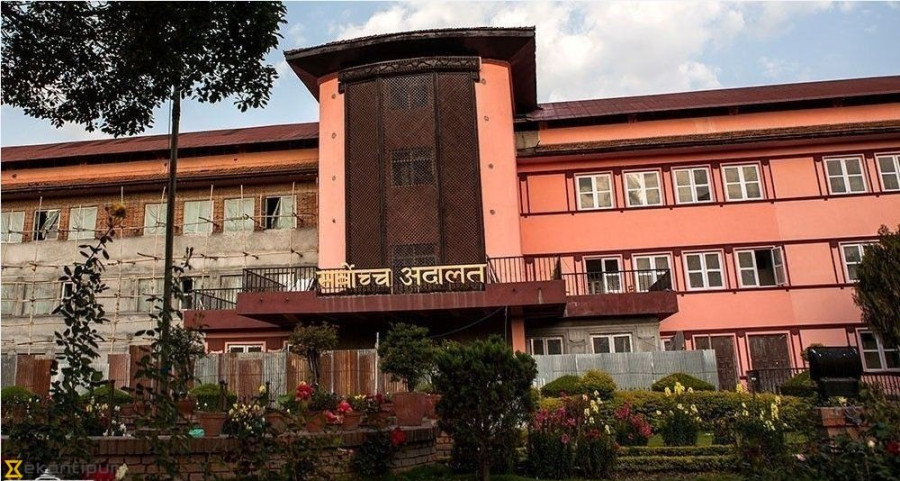Money
Supreme Court issues stay order against upper age limit for bank chiefs
The central bank has fixed an upper age limit of 65 years.
Rajesh Khanal
The Supreme Court on Tuesday issued a stay order against Nepal Rastra Bank’s decision to impose an age limit for chief executive officers of banks and financial institutions.
The single bench of Supreme Court Chief Justice Cholendra Shumsher JB Rana issued the interim order against the central bank to not implement its decision.
Issuing a circular last week, the central bank barred banks and financial institutions from appointing or reappointing chief executive officers who are above 65 years of age. In the new provision, any individual more than 65 years old is considered ineligible to become the chief executive officer of any bank or financial institution. Likewise, anyone above 69 years will have to retire from the post compulsorily.
The central bank introduced the policy by amending the Unified Directives 2075 on August 6. Prior to this, there was no age limit for the post of chief executive officer. Nepal Rastra Bank has also introduced an age bar for promoters of banks and financial institutions. According to the new directive, anyone who is 70 years old or above cannot be appointed as a board member.
The central bank has also adopted a policy of not giving continuity to a board member upon reaching the age of 74. Following the central bank’s move, a number of chief executive officers and directors who reached the age limit have been affected.
Among them are Narayan Das Manandhar, chief executive officer of Prime Commercial Bank; BK Shrestha, chairman of Everest Bank; and Shambhu Poudel, chairman of Nabil Bank who got retirement right after the Nepal Rastra Bank’s new policy.
Seeking to have the decision revoked, Manandhar of Prime Commercial Bank filed a case against Nepal Rastra Bank. The Supreme Court subsequently issued the interim order.
The Supreme Court in its stay order stated that the central bank’s move was against the Bank and Financial Institution Act 2017. “Article 29 of the act has put the minimum age limit of 25 years for CEOs, but it has not imposed any maximum age limit,” said the statement issued by the apex judiciary body.
The Supreme Court stated that the central bank’s circular had crossed the norms set by the existing act. “Based on the irreparable loss to the applicant, the new provision of the revised directive should not be enforced pending a final decision,” said the interim order issued by the Supreme Court.




 9.7°C Kathmandu
9.7°C Kathmandu















